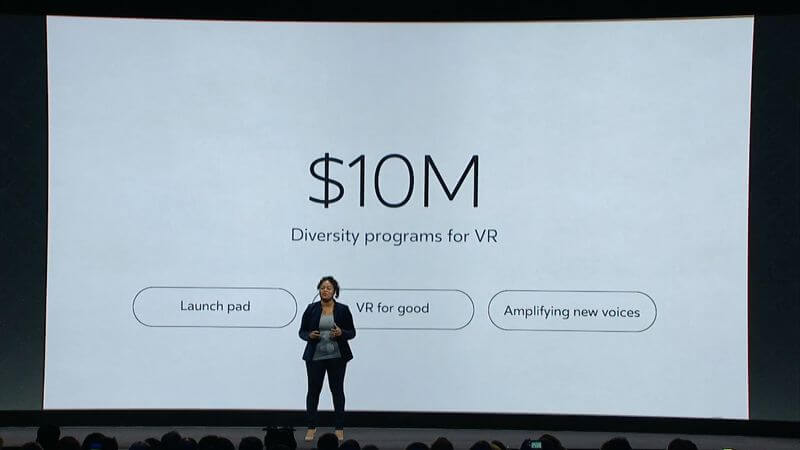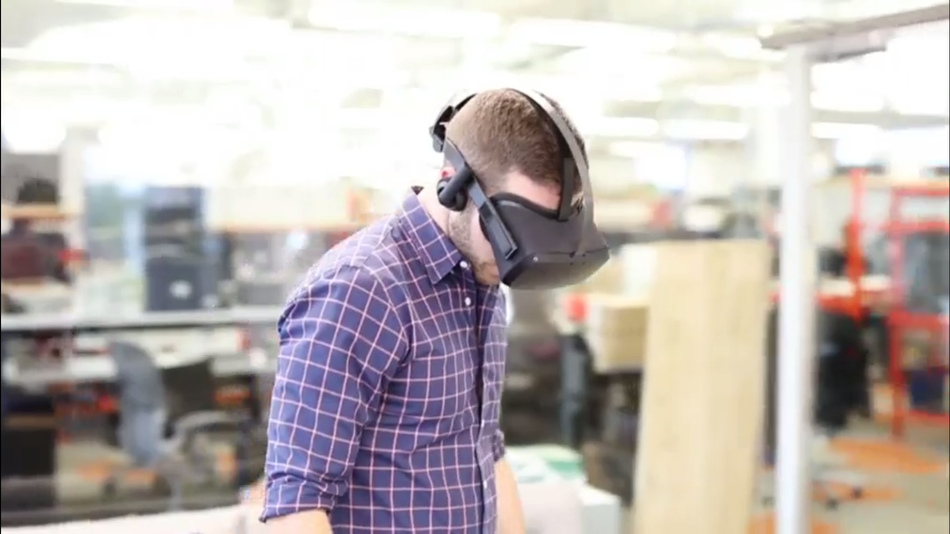Facebook made a series of announcements at the Oculus Connect 3 event yesterday. In addition to revealing that the Touch controllers would launch on December 6 for $199 (as predicted), the company unveiled a standalone prototype headset, its vision for VR relating to social media, Rift support for less-powerful PCs, and a $10 million investment in diversity initiatives.
Tripping over trailing wires has been one of the issues facing PC-powered virtual reality headsets. Backpack PCs such as those from Zotac and MSI offer a fix, but they still require users to carry weighty hardware around with them.
Oculus' solution comes in the form of a totally wireless headset, known as Santa Cruz. Described as a mid-range compromise sitting between the Galaxy-powered Gear VR and the Rift, the device features "inside-out tracking" that uses four wide-angle cameras around the edges and front for positional movement - meaning that, unlike the Rift and Vive, no external sensors are required to track the players. Qualcomm's Snapdragon VR820 reference headset uses the same inside-out technology.
Through its wireless online connection, the headset utilizes the cloud for real-time streaming of VR content. All the computing power comes from the small box at the back of the device. It's still a proof-of-concept, but the Santa Cruz could become one of many standalone VR systems in the future.
On the software side of things, Oculus revealed Oculus Avatars. These allow Rift owners to create customizable virtual representations of themselves that mimic the user's facial and upper body movements.
Using the avatars, groups of up to eight people can hang out in virtual landscapes. They can also be used in certain games. Zuckerberg showed how he was able to receive a phone call from his wife while in VR, remove his virtual phone, and speak to the real-world Priscilla Chan while she saw only his avatar.
Other news from the event included Oculus CEO Brendan Iribe's announcement that, thanks to two new image smoothing systems - Timewarp and Spacewarp - the Rift can now run on less-powerful, cheaper PCs: around $499 minimum, rather than $1000.
Finally, the company revealed it is spending $10 million on diversity initiatives. "It's no secret that this community needs to be even broader," said Ebony Peay Ramirez, Oculus' project manager for diversity. "Virtual reality will only succeed if it represents a diverse ecosystem that speaks to different people and opinions. We want to see a wide variety of richer voices. We know that a platform that's built with diverse thought, personalities, perspectives and imaginations is a much more engaging and dynamic one."

Addressing diversity seemed to make Oculus co-founder Palmer Luckey's absence all the more noticeable. After his association with a pro-Trump group that creates anti-Hillary memes was revealed last month, Luckey decided not to attend the conference, as he didn't want to be a distraction. It marks the first time he has missed a big Oculus event.
